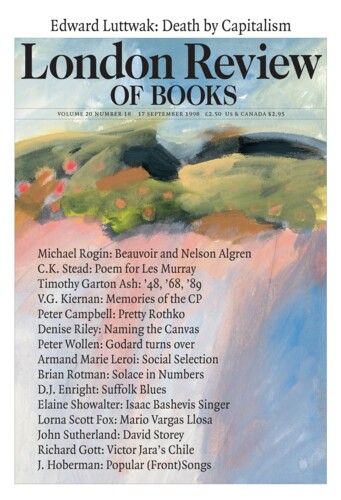Little Viper: Mario Vargas Llosa
Lorna Scott Fox, 17 September 1998
Some time in 1970 or 1971, I was picking boring books at random off my employer’s shelf – I was an au pair in Barcelona – when I opened a novel that had me laughing, and transfixed, by the bottom of the first page. My ignorance meant that I was one of the few people to discover One Hundred Years of Solitude without all that baggage of pleasures foretold. I was excited, and on learning that this was not simply one book, but part of the Latin American boom, I decided to study these works at university. Two authors gradually displaced the overripe, over-imitated Márquez from the top of my list: Julio Cortázar and Mario Vargas Llosa. The first constructed a dream of Buenos Aires and Paris, balancing paper-thin speculations in a bubble of eternal studenthood. The second couldn’t have been more different. A pungent brutality steeped the many voices in sexualised politics; and there was a cruel numbness that seemed the condition, somehow, of being Peruvian – I’ve been afraid of visiting that country ever since.’





